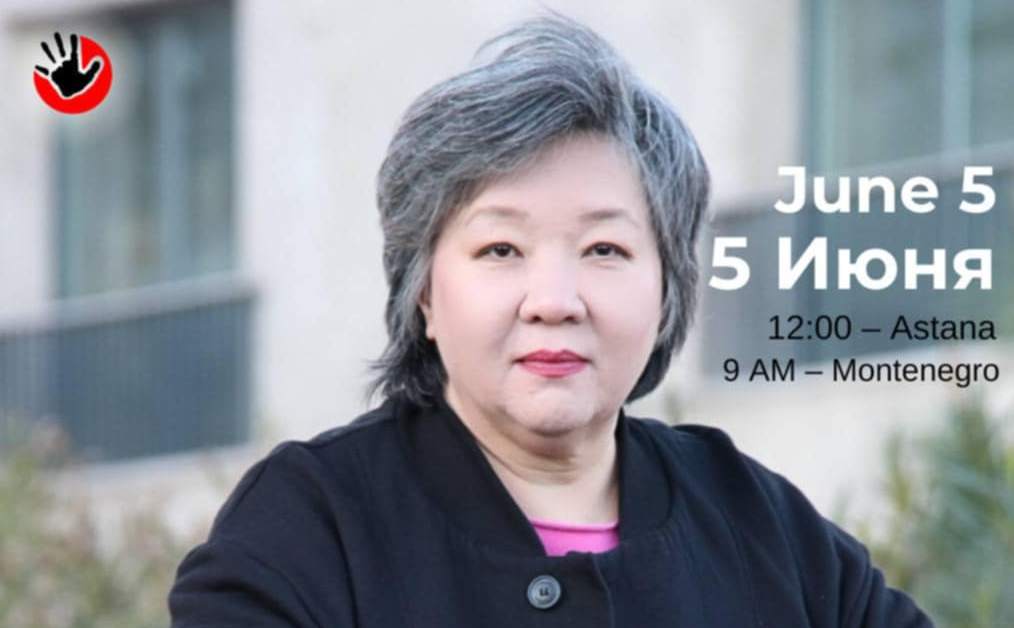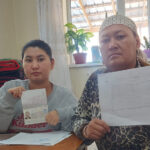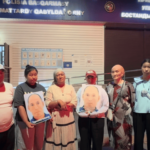Dinara Smailova, human rights defender and founder of #NeMolchiKZ, seeking asylum in Montenegro with her husband after more than seven years of pressure and intimidation from the Kazakh authorities. But that refuge is now under threat. Targeted by an extradition request from Kazakhstan, Dinara faces the risk of being sent back to a country where she claims to have been harassed because of her advocacy for women’s rights.
Her fate now lies in the hands of the High Court of Podgorica, which is set to rule on the extradition request this Thursday, June 6 2025.
Dinara Smailova is a Kazakh national and activist who has been actively defending women’s rights in Kazakhstan. Through her foundation, #NeMolchiKZ, she has helped ensure that over 60,000 women received free consultations, more than 5,000 perpetrators of domestic violence were brought to justice for administrative offenses, and 315 criminal convictions were secured thanks to the foundation’s work.
The foundation uses social media to expose cases of violence, denounce the inaction of authorities, provide legal advice, and raise awareness about human rights in Kazakhstan.
Unfortunately, although Dinara’s only aim is to seek justice for women whose rights have been violated, the Kazakh authorities have chosen to silence her activism. To do so, they have not hesitated to misuse legal mechanisms for political purposes, turning the law into a tool of injustice.
What is she accused of?
Over the past height years, Dinara Smailova has been the target of systematic persecution. Criminal proceedings against her have reportedly been opened, suspended or closed, and then reopened 16 times.
According to a letter dated May 24, 2024, from the Permanent Mission of the Republic of Kazakhstan to the United Nations Office and other international organizations in Geneva, six criminal cases have been opened against Dinara Smailova by the police departments of Almaty, Almaty Province, and East Kazakhstan Province. The charges include the dissemination of knowingly false information, violation of privacy, and fraud (Articles 147, 190, and 274 of the Kazakh Criminal Code).
On October 16, 2023, the police in East Kazakhstan Province opened a new criminal case against Ms. Smailova under Article 190 of the Criminal Code, accusing her of embezzling funds that had been voluntarily donated to “NeMolchi.KZ.”
Shortly after the criminal investigation against Ms. Smailova was launched, Kazakh police obtained the banking data of 7,053 individuals who had donated to “NeMolchi.KZ.” Police reportedly misled these donors by falsely stating that Ms. Smailova had already been convicted of fraud, and asked them to submit statements accusing the human rights defender of new fraudulent acts.
An additional criminal investigation was opened based on a complaint filed by a lawyer from the East Kazakhstan region. As the fraud allegations were not substantiated, Kazakh authorities then sought to identify potential victims among the donors. Only seven of them agreed to file a complaint against Dinara Smailova.
On December 27, 2023, Ms. Smailova was officially declared a suspect in the case. If found guilty, she faces up to ten years in prison. It was on this basis that Ms. Smailova and her lawyer were informed by Montenegrin authorities that Kazakhstan had formally requested her extradition.
It appears, however, that behind these accusations lies a deeper intention by the Kazakh authorities: to put an end to both the work of the organization and Dinara Smailova herself.
The Mandates of the Special Rapporteur on the situation of human rights defenders; the Special Rapporteur on the rights to freedom of peaceful assembly and of association; the Special Rapporteur on violence against women and girls, its causes and consequences; and the Working Group on discrimination against women and girls have expressed serious concern over what they describe as attempts to criminalize Ms. Smailova. These actions appear to be reprisals for her work as a human rights defender and for exercising her rights to peaceful assembly and association. They also raised concerns about the lack of due process in the legal proceedings against her.
Ms. Smailova filed an asylum application in Montenegro in October 2023 — prior to the Kazakh government submitting its request for her extradition and detention. As such, her potential extradition to Kazakhstan raises a real risk of persecution.
Will the Court be able to recognize the inconsistencies in the case and the true motivations behind this legal process?
We hope that, from the very first hearing, the Montenegrin judges will reject the extradition request against Dinara Smailova, taking into account the numerous contradictions in the case and the pattern of harassment she has endured for years. Any decision to the contrary would place in grave danger a courageous woman, persecuted for defending the rights of others.
Lawyer and philosopher Cesare Beccaria Beccaria once said, “The belief that there is no place on earth where crime goes unpunished would be an effective way to prevent it.” In contrast, one could say that the belief in the existence of a place where political and gender-based repression is prohibited would already be a step toward its eradication.


















